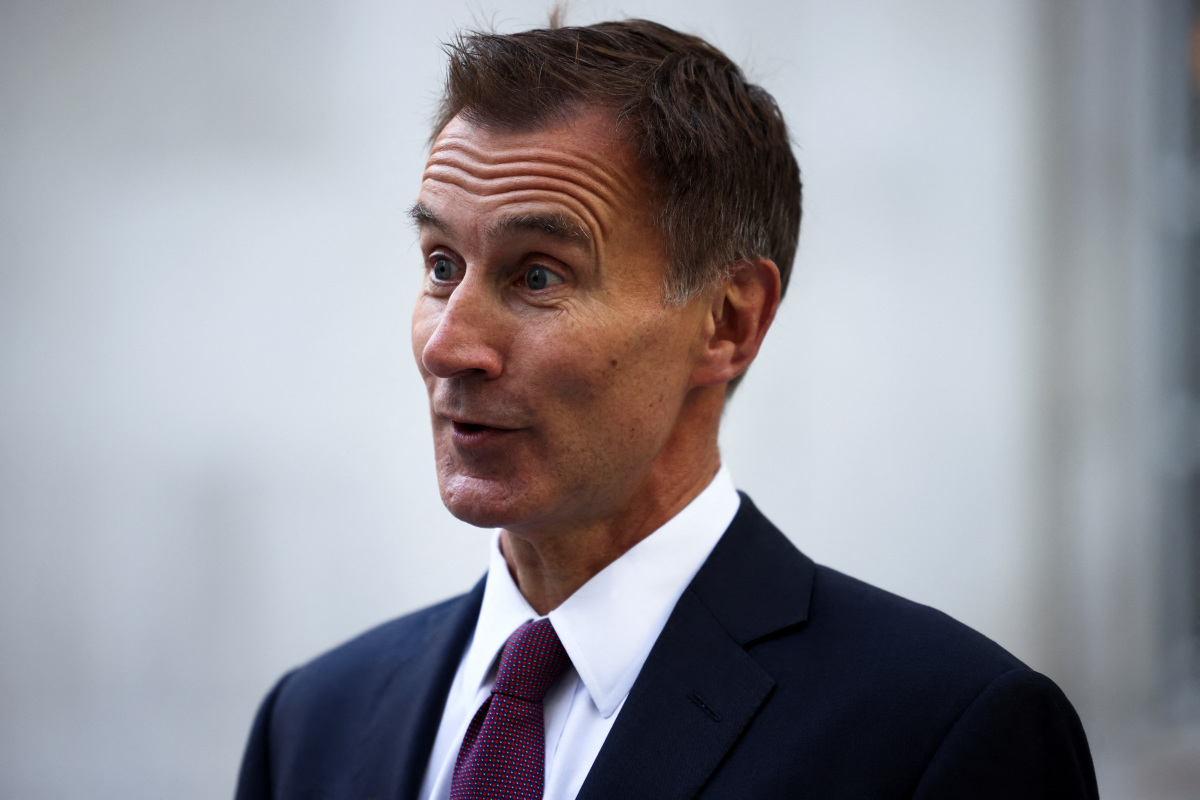New finance minister Jeremy Hunt promised to win back Britain’s economic credibility by accounting for every penny of the government’s tax and spending plans, while insisting that his boss Prime Minister Liz Truss remained in overall charge.
Truss appointed Hunt on Friday in an attempt to rescue her leadership as confidence in her ability to run the country drained away within both her own Conservative Party and international financial markets.
Investors have sold British government bonds heavily since Sept. 23 when Hunt’s predecessor, Kwasi Kwarteng, announced a string of unfunded tax cuts without publishing a set of independent economic forecasts.
The knock on effects forced the Bank of England to make an emergency intervention to protect pension funds and drove up mortgage costs – adding to the squeeze on Britons’ finances.
“No government can control the markets. No Chancellor should seek to do that,” Hunt told BBC television in an interview broadcast on Sunday.
“There is one thing we can do and that’s what I’m going to do, which is to show the markets, the world, indeed people watching at home, that we can properly account for every penny of our tax and spending plans.”
Britain’s economy is at risk of going into recession at the same time as the Bank of England is raising interest rates to control soaring inflation. Bank of England Governor Andrew Bailey said on Saturday he thought a big increase in interest rates would be needed in early November.
Truss – who won the leadership of the Conservative Party barely a month ago after promising to slash taxes – fired Kwarteng on Friday and has ditched key parts of the programme they agreed together.
The chaos has fuelled discontent in the governing party, who before Friday were already splintered and falling far behind the opposition Labour Party in opinion polls. Sunday’s newspapers were rife with stories of plans to replace Truss.
Even U.S. president Joe Biden criticized Truss’s original economic plan as a mistake.
“I think that the idea of cutting taxes on the super wealthy at a time when – anyway, I just think – I disagreed with the policy, but that’s up to Great Britain to make that judgment, not me,” he said.
DIFFICULT DECISIONS
After effectively dismantling Truss’s gamble that tax cuts would spur increased growth and pay for public spending, Hunt has said he will go further including imposing tighter spending controls and some tax rises.
“I’m going to be asking every government department to find further efficiency savings,” he said, adding that while he wanted to keep other tax cuts the government has promised, he ruled nothing out in his drive to balance the books.
He said he would set out the details in a fiscal statement already scheduled for Oct. 31.
The Sunday Times said that initial forecasts from the Office for Budget Responsibility showed a 72 billion pound ($80.42 billion) shortfall in the current plans. The paper also said Hunt would delay a planned cut to the basic rate of income tax.
The Treasury declined to comment on the report.
Asked if he thought financial markets would have confidence in his plans, Hunt told the BBC: “Well, I think, you know, for people trading the markets, actions speak louder than words.”
A first test will come on Monday morning when trading in Britain’s battered government bonds resumes without the support of the Bank of England’s emergency bond-buying programme which expired on Friday.
“Basically we’ve moved from looking not too dissimilar from the U.S. or Germany as a proposition to lend, to looking more like Italy and Greece,” former Bank of England Deputy Governor Charlie Bean told Sky.
‘THE PM IS IN CHARGE’
While Hunt seeks to fend off financial market pressure, Truss has to deal with mutiny from within her party.
Reports citing anonymous sources filled Sunday’s newspapers, with defence minister Ben Wallace touted as the preferred replacement of senior lawmakers by the Sunday Mirror, and Rishi Sunak – who Truss defeated last month in a leadership contest – named as another possible successor by the Sun on Sunday.
Truss wrote an article in the Sun admitting that her plans had gone “further and faster than the markets were expecting”.
“I’ve listened, I get it,” she wrote. “We cannot pave the way to a low-tax, high-growth economy without maintaining the confidence of the markets in our commitment to sound money.”
Conservative lawmaker Robert Halfon said her initial plans had made the government look like “libertarian jihadists” who had treated the whole country as laboratory mice on which to carry out ultra free market experiments.
He told Sky that while he was not calling for her resignation now, things had to improve.
Hunt was asked whether, given the drastic policy change he has overseen, he was now effectively running the government.
“The prime minister is in charge,” he said. “She has changed the way we’re going to get there. She hasn’t changed the destination, which is to get the country growing.”
($1 = 0.8953 pounds)








